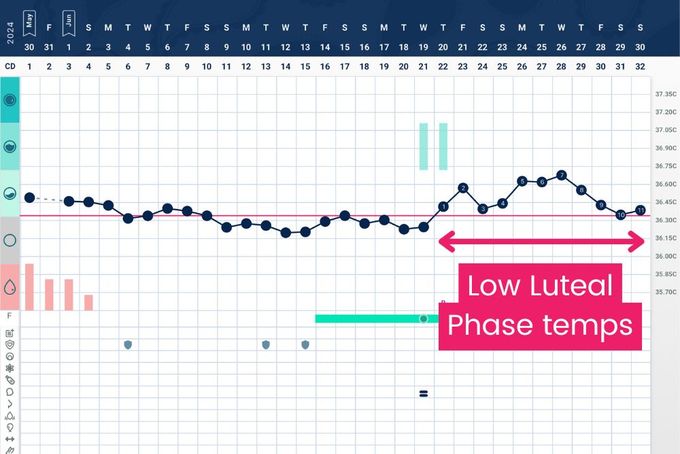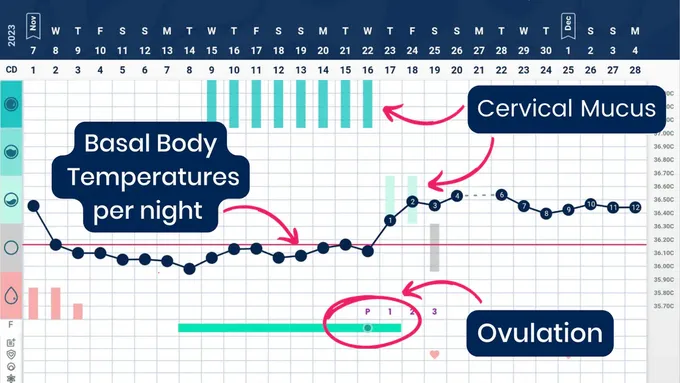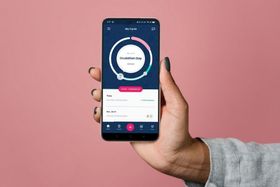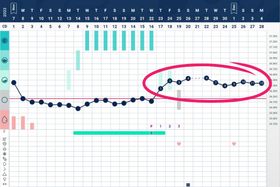Basal Body Temperature: All Your Questions Answered Part III
Updated July 7, 2025
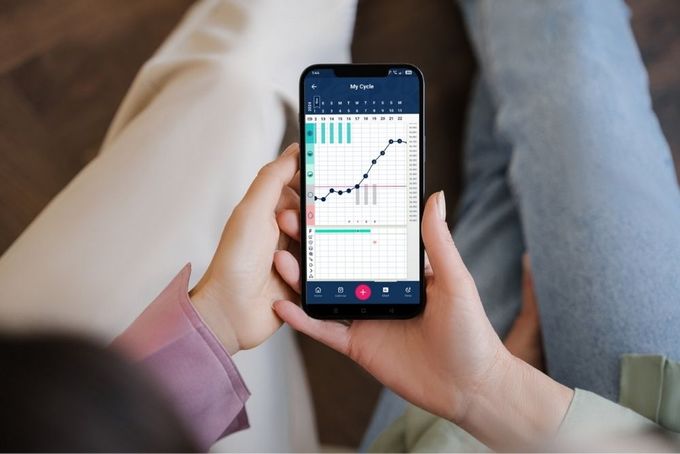
Here at Tempdrop, we love basal body temperature (BBT)! And not just because it's what Tempdrop measures. We love everything BBT can tell you about your health, fertility, and more! So we're here to answer a THIRD set of questions from you, our users. If you have more questions, go find us on Instagram!
If you missed them, go read through Part I and Part II!
What if my BBT seems to be lower than what most people experience?
If you experience lower temperatures than are considered standard, but only in your luteal phase (after ovulation), this is a good reason to have your provider test for progesterone levels throughout the luteal phase. After all, low luteal phase temps are possibly caused by low progesterone. (Proov can also help you identify potential low progesterone at home before taking the concern to your provider.)
Many people with hypothyroidism (under-producing thyroid) experience low temperatures through the whole cycle. You can learn more in this article. While your basal body temperature can't diagnose problems like hypothyroidism that may affect your cycle, it can be a good diagnostic tool to take to your provider to justify further testing.
How long after giving birth can I expect to see a temperature shift again? When should I start taking my temperature to make sure I catch the first ovulation temperature shift?
The answer to this depends on your individual habits and body. You may expect your first temperature shift anywhere between 6 weeks and 2 years after giving birth. The good thing is the shift won't be completely random - if you're also keeping track of cervical mucus (CM), you should have a heads up a shift may be coming. With Tempdrop, you have a non-invasive way to temp every night without having to go months (or a year or more) without seeing a temperature rise.
Is charting my BBT helpful if I have irregular cycles? (Including irregular cycles from PCOS, thyroid problems, or endometriosis)
Yes! Charting your BBT is especially helpful for those with irregular cycles! Why? Well, because BBT helps you confirm ovulation with more confidence.
Take, for example, PCOS. Many with PCOS regularly experience longer cycles with multiple patches of peak-type cervical mucus. Charting BBT alongside CM makes it much easier to confirm ovulation with this pattern of CM in your cycle. And luckily, with Tempdrop you don't have to get frustrated waking up at 5 am every day during a long cycle.
Is charting BBT useful for me if I'm TTC?
Yes! While charting BBT confirms ovulation so you'll want to make sure you're also using another tool (such as cervical mucus charting or ovulation tests), having BBT information is incredibly useful for many reasons (these are just a few).
- BBT confirms ovulation - if you're not ovulating, you can't become pregnant
- BBT temperatures can help identify cycle concerns - see the first question in this series for more details, but BBT has the potential to help identify concerns with progesterone and thyroid
- BBT can help you understand how long your luteal phase is - this is important because your luteal phase should be at least 10 days long in order to sustain a healthy pregnancy
If I bleed but didn't experience a temperature shift, is it still considered a cycle?
No. Technically all cycles are ovulatory and only a true period (not just any bleed) counts to start a new cycle. In this case, if you were unable to confirm ovulation, it should be considered anovulatory. This is important information to be able to share with your practitioner! However, you may find it easier to mark as a new cycle in your chart for readability - just make sure there's a note that the previous "cycle" wasn't ovulatory.
*Note: It isn't abnormal to have delayed ovulation when coming off of hormonal birth control, or when postpartum.
Do you still have more questions about BBT? Feel free to ask us over on our Instagram account - and make sure you check out Part I and Part II!
